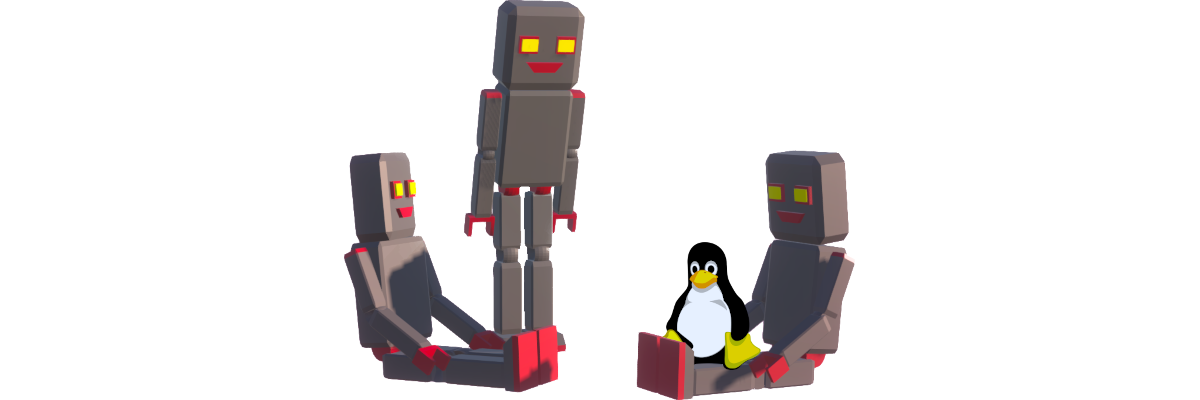
Today, we announced the release of the Linux version of Robot Trivia Funtime, our multiplayer trivia game for PC. This also includes a Linux version of the free demo. We're joining the growing number of indies who want to support Linux gaming, and understand the importance of offering native support.
The Linux version of Robot Trivia Funtime officially supports Ubuntu 24.04, but it was also tested working on Ubuntu 20.04, and presumably could unofficially work on a number of distros and configurations.
It's extra work supporting another platform, especially if you're an indie dev. Of course, it's also easier than ever, with most major game engines like Unreal, Unity, and GameMaker not only fully supporting exporting to Linux, but also providing IDEs for development in a Linux OS.
Linux Gaming is Getting Interesting
While the Linux market on Steam is substantially smaller than Windows (especially when negating Steam Deck devices), more and more indie devs speak anecdotally of non-trivial increases to their sales when supporting the platform. According to Reddit dev stories over the last 24 months, indie devs are getting more wishlists and exposure (perhaps due to the smaller pool of games), and reporting sales equaling 10 - 18% of total purchases. That's nothing to scoff at.
Native Builds Matter
When I was a kid, I was blown away by WINE, a compatibility layer for Linux which allowed Windows programs to run. Exactly how well things would run varied wildly, and a lot of software didn't work too well, especially anything with nasty DRM and over-sensitive anti-piracy software built-in.

Fast forward to 2024, and Steam offers an excellent Windows software compatibility system called Proton. It's actually related to WINE and was built in co-operation with CodeWeavers, a company that also sell a compatibility program called CrossOver. In some cases, Windows games on Steam run wonderfully on Linux, almost as if they were made for it. In other cases, games crash or barely work.
Proton is incredible, especially compared to past efforts. However, there's a danger that developers become complacent about it, and expect Proton to more or less take care of Linux gamers, wholly ignoring the fact that Proton is imperfect and no replacement for an optimised, native build of a game.
Is It Worth It for Your Game?
If you're building a game of your own and you're wondering if it's worth it, the answer is maybe. Ultimately, more platform support means a potentially wider audience and more oppourtunities to reach different communities in gaming. However, smaller teams and indies with less resources may find it difficult if their project is very complex; extra testing is required on Linux, and some bugs and issues may end up being Linux-specific. If Linux audiences don't respond to your game, it could mean an increase in development time with small return. However, as mentioned above, indies have been reporting broadly positive experiences with supporting Linux.
In our case, there was some minor work required to support Linux. We had to swap out an old 3rd party package we were using for native system dialogues, used in our question editor for opening and saving files. Despite being cross-platform, it was poorly maintained and didn't work correctly in modern versions of Ubuntu. We just got rid of it and used a file dialogue system built in Unity/C# instead, but this is an example of how something in our game had to be rebuilt in the interest of Linux compatibility.

Above: the menu screen has seen some recent changes.
It didn't matter too much, as we've been changing up the UI and menus. In the last update the background changed from a static, lined background to a scrolling background with robot heads. I'm not sure where I first saw the scrolling background technique, but it's kind of nostalgic and appears in a lot of old games. The robot on the main menu also looks around now, and will soon be used to show player customisation. It'll probably change a lot over time, but for now, it's functional.
What's Next for Robot Trivia Funtime?
We released our free demo this week for Windows and Linux. Moving forward, player customisation remains the focus of development. This is a big mechanic which requires a lot of work, but we're hoping to share a rudimentary implementation of this soon. We've also put together a Steam game bundle for our projects.
That's all for now. Until next time!


